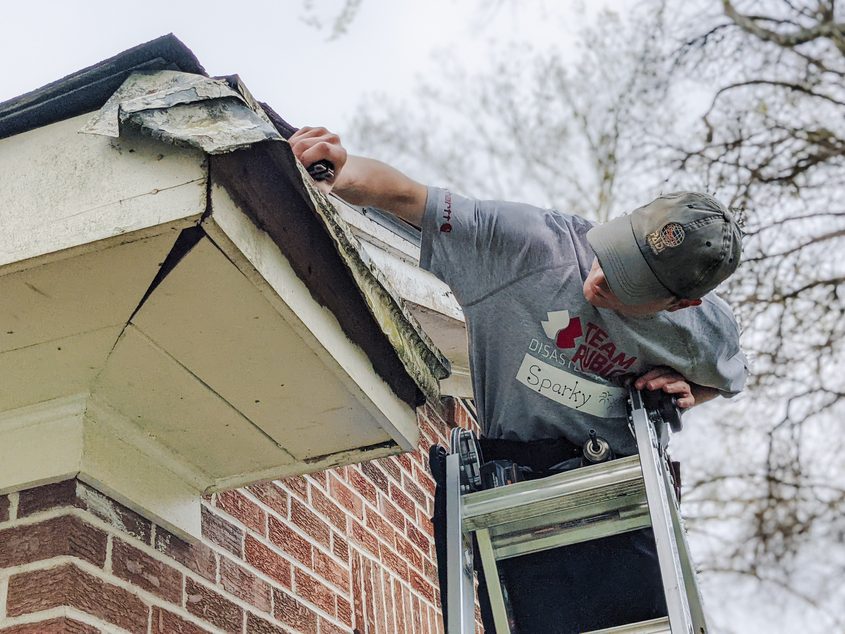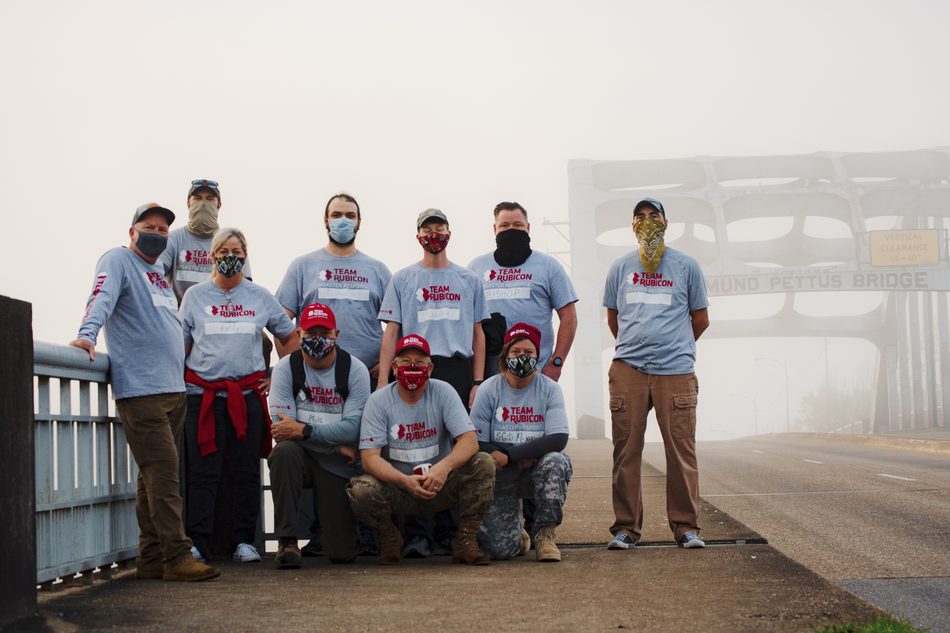When supercell thunderstorms formed in the Gulf Coast last March, they quickly turned deadly, spinning up 25 tornadoes in Alabama on St. Patrick’s Day. One of those—an EF2 tornado 1,000 yards at its widest point—touched down in historic Selma, producing damage for more than 5 miles. This in an area still faced with damage from Hurricane Zeta less than six months prior.
Within days of the tornado Team Rubicon volunteers, known as Greyshirts, were on the ground in Selma helping get individuals—many without insurance—back into their homes. Greyshirts spent weeks in neighborhoods and areas with vulnerable and marginalized populations tarping roofs in advance of future storms, clearing debris from homes, and conducting saw operations to remove downed trees from driveways, entryways, and roofs.
Yet while Greyshirts managed to help return numerous people to their homes, many other homes were damaged beyond repair.
So, the veteran-led disaster relief nonprofit is returning. With initial funding from the Travelers Foundation, and in collaboration with The King Center, Team Rubicon will rebuild 10 homes in Selma destroyed by Hurricane Zeta and the March tornadoes.

It’s part of Team Rubicon’s mission to provide equitable recovery in areas affected by low-attention disasters—smaller-scale disasters that often go unnoticed on a national level and are therefore underfunded. Low-attention disasters generally do not garner much, if any, media attention or trigger a federal disaster declaration, making it nearly impossible for residents to access critical resources for recovery.
“We’ve seen again and again that low-income and marginalized populations are impacted most by disasters,” said Art delaCruz, CEO of Team Rubicon. “Our approach to disaster relief is rooted in the belief that every community deserves a chance to recover. In a place like Selma, the combination of physical hazards and socio-economic risks make equitable recovery from disasters challenging. Team Rubicon supported the community after the tornadoes earlier this year. Now, with our partners at Travelers, and the help of The King Center, we’re able to go back to finish what we started.“
Those 10 homes being rebuilt will have the added benefit of being made more disaster resilient, thanks in part to a gift from International Paper and contributions from roofing and waterproofing manufacturer GAF which, as part of its social impact initiative GAF Community Matters, is donating roofing materials for resilient rebuilding. Team Rubicon takes an all-hazards approach to its Rebuild programs, incorporating resilient building materials and methods wherever feasible to mitigate the adverse effects of future hazards while addressing the community’s current recovery needs. This approach prioritizes building to Insurance Institute for Business & Home Safety (IBHS) Fortified standards, where possible. The goal: not only to get people back into their homes more quickly following the storm but also to enable them to better weather the next storm, and to age in place.
Team Rubicon has already put boots on the ground—or, on roofs, as it may be—in Selma. Four homes in the area have already had new roofs installed and five other homes have been approved for rebuild.
“I think there’s a degree of assumption made about Selma that because people recognize its name, it must receive assistance after disasters. Having now been there, I’ve seen that that isn’t true, and that vulnerability is high,” says Team Rubicon’s Selma Rebuild Project Manager, Brandon Callahan. “It’s amazing for us to be able to deploy here as a rebuild team to help these Selma citizens. I can’t wait to help some of them get back into their homes.”




